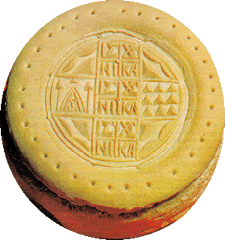
If you would like that a your commemoration list be passed to the altar be read with attention and not hurriedly, remember the following rules:
- Write coherently, better — in block letters mentioning not more than 10 names in one petition.
OFFSITE: Beginning Orthodoxy, Part I - The original article.
- Put the title at the top: "for the living" , or "for the departed."
- Put the names into genitive case (answering the question "whose").
- Use the full name even if you are petitioning for a child - do not use nicknames.
- Find out how to write the traditional church variant of the names (e.g. not Polina, but Appolinaria ; not Arteom, but Artemius, not Yegor but George).
- Write the clerical title in front of the names of clergymen; you can write them in full or use understandable abbreviations (e.g. priest Peter or archb. Nicon).
- There is no need to indicate last names, patronymics, positions and occupations of people in the petition, neither should we show what kind of relations those people are to us.
- The words "soldier," "monk," "nun," "sick," "travelling," "the prisoner" are allowed to be mentioned in the petition.
- On the contrary, we should not write "lost," "suffering," "angry," student," "mourning," "maiden," "widow," "pregnant."
- In the petitions for the departed you should note "newly departed" (within 40 days upon death), "memorable" (the dead who are remembered on that day), or "murdered."
- We do not have to pray for those whom the Church has sanctified (for example, Saint Xenia, the fool-for-Christ).
- We pray for the living who have orthodox names, but only for those departed who had been baptized in the Orthodox Church.
- Most churches provide special printed slips of paper (usually located near the candle counter) for commemoration purpose. A slip of ordinary paper will do if that is not the case.